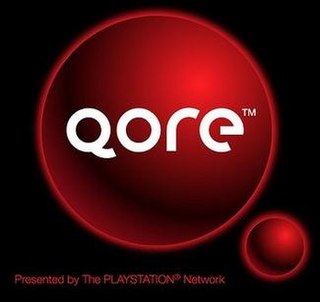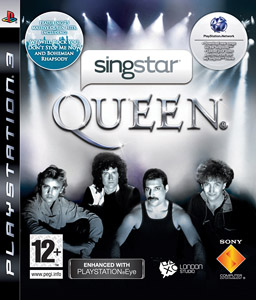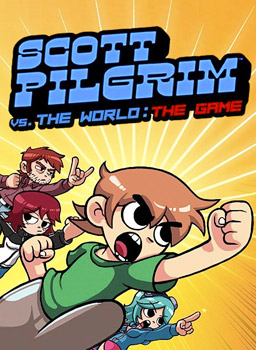
The PlayStation 3 (PS3) is a home video game console developed and marketed by Sony Computer Entertainment. The successor to the PlayStation 2, it is part of the PlayStation brand of consoles. It was first released on November 11, 2006, in Japan, November 17, 2006, in North America, and March 23, 2007, in Europe and Australasia. The PlayStation 3 competed primarily against Microsoft's Xbox 360 and Nintendo's Wii as part of the seventh generation of video game consoles.
PC Gamer is a magazine and website founded in the United Kingdom in 1993 devoted to PC gaming and published monthly by Future plc. The magazine has several regional editions, with the UK and US editions becoming the best selling PC games magazines in their respective countries. The magazine features news on developments in the video game industry, previews of new games, and reviews of the latest popular PC games, along with other features relating to hardware, mods, "classic" games and various other topics. PC Gamer and parent Future began digital PC Gaming Show at E3 2015.

Official Xbox Magazine (OXM) was a British monthly video game magazine which started in November 2001 around the launch of the original Xbox. A preview issue was released at E3 2001, with another preview issue in November 2001. The magazine was bundled with a disc that included game demos, preview videos and trailers, and other content, such as game or Xbox updates and free gamerpics. The discs also provided the software for the Xbox 360 for backward compatibility of original Xbox games for those without broadband and Xbox Live access. From January 2012, OXM no longer included a demo disc. In mid-2014, the U.S. version was merged into the UK version on the website, which lasted only a few months until Future plc announced that it was closing its website along with all the other websites that Future has published, including Edge and Computer and Video Games. In February 2015, OXM and all of Future's video game websites were redirected into GamesRadar.
Xbox World was a British Xbox and Xbox 360 magazine published by Future plc.
Various accessories for the PlayStation 3 video game console have been produced by Sony and third-party companies. These include controllers, audio and video input devices like microphones, video cameras, and cables for better sound and picture quality.

Remote Play is a native functionality of Sony video game consoles that allow the PlayStation 3, PlayStation 4 and PlayStation 5 to wirelessly transmit video and audio output to a receiving device, which would also control the console. Remote Play works either nearby, when both the console and the receiver are on the same home local area network, or remotely via the Internet through Sony's servers.

The PlayStation Eye is a digital camera device, similar to a webcam, for the PlayStation 3. The technology uses computer vision and gesture recognition to process images taken by the camera. This allows players to interact with games using motion and color detection as well as sound through its built-in microphone array. It is the successor to the EyeToy for the PlayStation 2, which was released in 2003.

The PlayStation 3 system software is the updatable firmware and operating system of the PlayStation 3. The base operating system used by Sony for the PlayStation 3 is a fork of both FreeBSD and NetBSD known internally as CellOS or GameOS. It uses XrossMediaBar as its graphical shell.
The seventh generation of home video game consoles began on November 22, 2005, with the release of Microsoft's Xbox 360 home console. This was followed by the release of Sony's PlayStation 3 on November 17, 2006, and Nintendo's Wii on November 19, 2006. Each new console introduced new technologies. The Xbox 360 offered games rendered natively at high-definition video (HD) resolutions, the PlayStation 3 offered HD movie playback via a built-in 3D Blu-ray Disc player, and the Wii focused on integrating controllers with movement sensors as well as joysticks. Some Wii controllers could be moved about to control in-game actions, which enabled players to simulate real-world actions through movement during gameplay. By this generation, video game consoles had become an important part of the global IT infrastructure; it is estimated that video game consoles represented 25% of the world's general-purpose computational power in 2007.
PlayStation is a video gaming brand that consists of five home video game consoles, two handhelds, a media center, and a smartphone, as well as an online service and multiple magazines. The brand is produced by Sony Interactive Entertainment, a division of Sony.

PlayStation: The Official Magazine (PTOM) was a magazine originally known as PlayStation Magazine (PSM), becoming PlayStation: The Official Magazine in late 2007. PlayStation: The Official Magazine was published 13 times a year by Future plc until its cancellation in late 2012.
SarcasticGamer.com was an independent video gaming blog and community site that was relaunched as a podcast. As part of the GamerCast Network, a community of independent podcasters, the website focused on parodying the latest events happening in the gaming industry. Although the website was best known for its satirical news articles and parodies, it also featured reviews, news, opinions and rants. All articles, however, stayed true to the "sarcastic" ethos of the site. Sarcastic Gamer was relaunched as a podcast-only website in December 2012 before closing its site in 2015.

Qore was a monthly subscription-based interactive online magazine for the PlayStation Network and replaces the Jampack series of disks offered by PlayStation Underground. Available only in North America, the service offered high definition videos, interviews, and behind-the-scenes footage pertaining to upcoming and recently released PlayStation games. It also offered exclusive access to game demos and betas. The product was available to download to the PlayStation 3 from the PlayStation Store, where users were able to choose to purchase individual episodes or an annual, 13-episode subscription. PlayStation Plus subscribers received Qore free of charge for the duration of their subscription. The magazine was presented by Veronica Belmont & Audrey Cleo and later Jesse Blaze Snider & Tiffany Smith.

Watchmen: The End Is Nigh is an episodic video game that serves as a prequel to the film adaptation of the DC Comics limited series Watchmen. The game was originally announced for release in downloadable installments on Microsoft Windows, PlayStation Network, and Xbox Live Arcade, with the first one released in March 2009 to coincide with the film's theatrical release. The second episode was released in July and August 2009.

SingStar Queen is a competitive karaoke video game for the PlayStation 3 and PlayStation 2, developed by London Studio and published by Sony Computer Entertainment Europe. The game features the music of rock band Queen.

FirstPlay was a video gaming online magazine published by Future Publishing for Sony Computer Entertainment Europe. It was produced by the team behind PlayStation Official Magazine and features video reviews and previews and screenshots of upcoming and recently released PlayStation 3 games. Episodes were released weekly on the PlayStation Store where users could choose to purchase a single episode or a 90-day subscription at a discounted rate.

Scott Pilgrim vs. The World: The Game is a side-scrolling beat 'em up game developed by Ubisoft Montreal and Ubisoft Chengdu and published by Ubisoft, based on the Scott Pilgrim series of Oni Press graphic novels by Bryan Lee O'Malley and tying in with the release of the film of the same name. The game was originally released digitally for Xbox 360 via Xbox Live Arcade and PlayStation 3 via PlayStation Network in August 2010 before being delisted in December 2014. An updated re-release for Nintendo Switch, PlayStation 4, Windows, Xbox One and Google Stadia titled Scott Pilgrim vs. The World: The Game – Complete Edition, was released on January 14, 2021.

Virtua Tennis 4, known in Japan as Power Smash 4, is the third sequel to Sega's tennis game franchise, Virtua Tennis. It was released on PlayStation 3, Xbox 360, Microsoft Windows, Wii and PlayStation Vita. This is the first main series Virtua Tennis game to not have an arcade release before the console releases. An arcade version was also released, which is powered by the PC-based Sega RingEdge arcade system. There are two versions of the cabinet: an upright 4-player cabinet, and a deluxe 4-player cabinet.
Sony has released a number of previously released PlayStation video games, remastered in high-definition (HD) for their newer consoles, a form of porting. A number of related programs exist, the most prominent two being "Classics HD" and "PSP Remasters". The former consists of multiple PlayStation 2 games compiled on one Blu-ray Disc. The latter are individual PlayStation Portable games republished on Blu-ray. These games are not direct ports, but remastered versions in high-definition, to take advantage of the newer consoles' capabilities. The remastering of the games include updated graphics, new textures, and Trophy support, and some of the remastered games released on PlayStation 3 have included 3D and PlayStation Move support. Some HD remasters have also been released individually or in bundles as downloads on the PlayStation Store; others are released exclusively as downloads.

The PlayStation 4 (PS4) is a home video game console developed by Sony Interactive Entertainment. Announced as the successor to the PlayStation 3 in February 2013, it was launched on November 15, 2013, in North America, November 29, 2013, in Europe, South America, and Australia, and on February 22, 2014, in Japan. A console of the eighth generation, it competes with Microsoft's Xbox One and Nintendo's Wii U and Switch.












